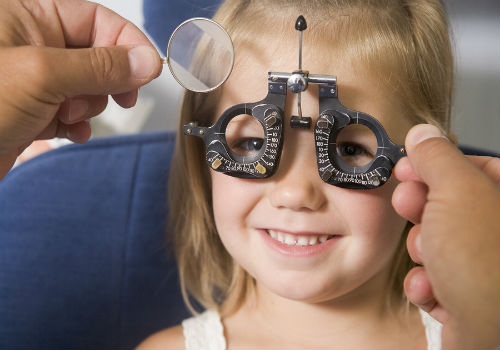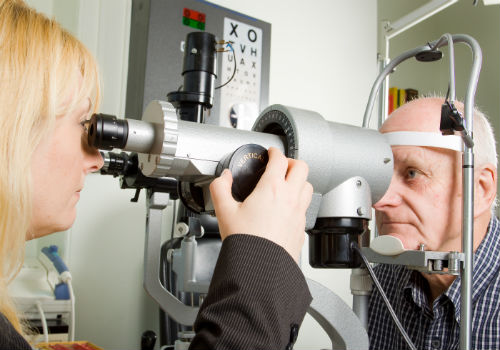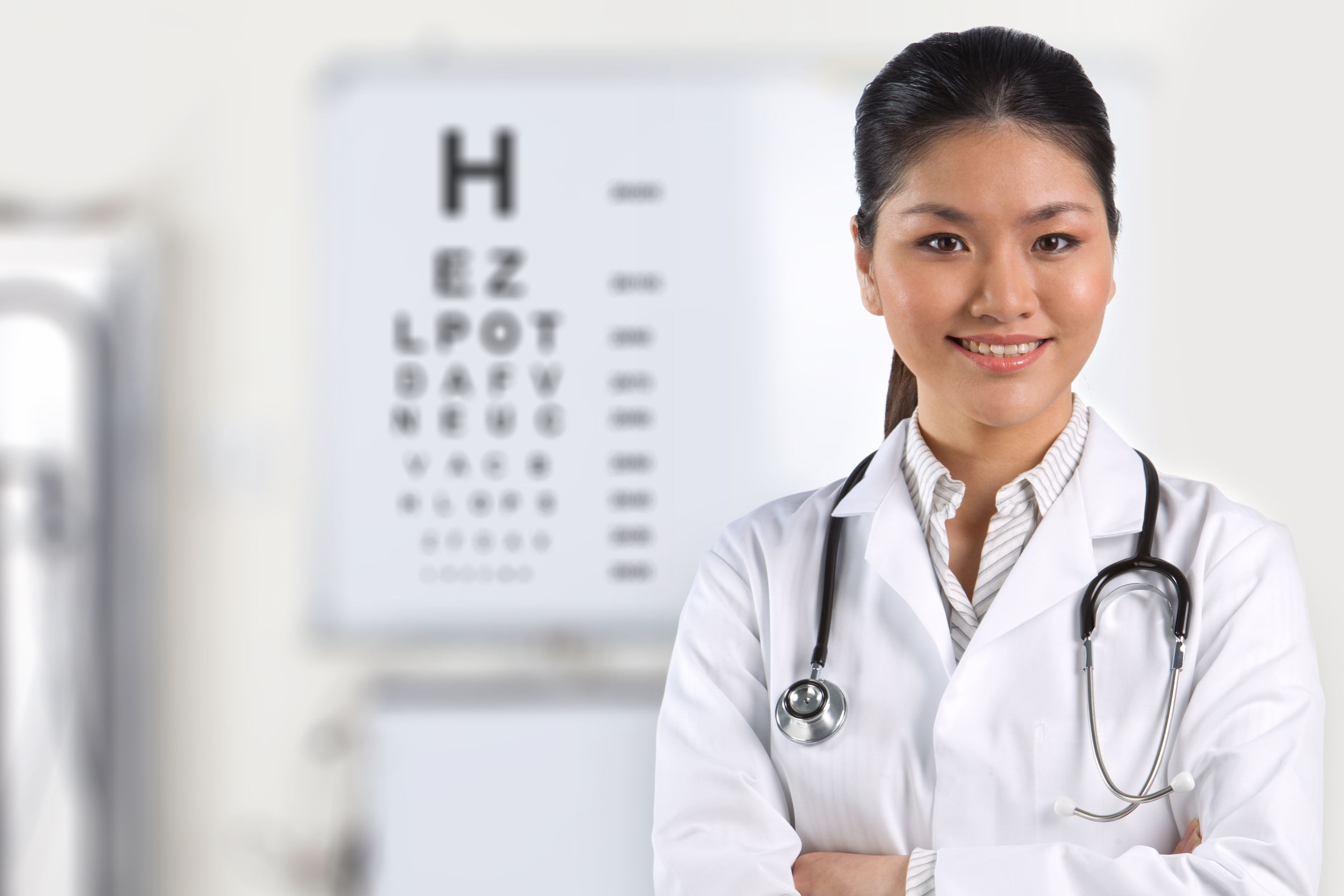When you are going in for your first eye exam, it is important to know what to expect. Learning about what occurs in a comprehensive eye exam can help you understand what each test represents and help you monitor your eye health. Eye doctors and their staff are happy to discuss the tests they are administering and what exactly they are testing for. in
Before the Comprehensive Exam
An eye exam lasts typically from 30 minutes to an hour during which you will undergo a series of tests to check your vision and health. Each test looks for specific problems within the eye.
Not only do exams help detect issues at their earliest stages, but they also give your eye doctor accurate readings and measurements for you to receive optimal eye-health treatment, vision adjustments, and medical advice.

An exam can be divided into three different age groups; children under the age of three, school-age children, and adults.
If your child is a toddler, the pediatrician or ophthalmologist will evaluate your child’s eyes for the most common problems like lazy eye, crossed eyes, or misaligned eyes.
If your child is of school-age or a teenager, your doctor will check their eyes for vision problems, medical issues, and advise you about the frequency of the visits. Normally, a child should come back annually to ensure no diseases or problems have developed.
It is recommended that adults without a history of family eye issues visit their eye doctor at least once every two years. Those should book annual or even more eye exams.

A Comprehensive Exam
For everything you need to know before you go, a comprehensive eye exam will usually consist of:
1.A question/answer evaluation of your medical history.
2.A quick look at your personal vision history—whether there have been any changes in your vision, date of the last examination, etc.
3.A verbal evaluation of any problems you may be having at the moment.
4.The actual health evaluation, including:
- An external examination of the various parts of your eyes.
- A dilated examination of your retina and optic nerve.
- A fluid pressure examination for glaucoma.
- A visual acuity examination, which measures refractions, clarity, and sharpness of your vision (both far and near).
- A visual field testing evaluation which includes your peripheral vision of the surrounding area.
- Examination results—regarding any visual problems you may be experiencing due to changes in age, disease, or other medical issues.
- If results are worrisome, you may be asked for additional testing at a later date.
Although some patients will additionally test based on their eye and overall health, this list is the basic assessment for a comprehensive eye exam.
Here are a few other tests that could be involved:
- Eye muscle test: Your doctor will evaluate your eye movement and muscle strength by having you follow a pen or light.
- Confrontation exam: This measures if you can see an object coming into your line of vision—comparing one eye to another.
- Manual testing: This is the same as a confrontation exam but also includes a screen.
- Color vision testing: Done initially on your first visit, this evaluates if you have a color deficiency.
- Slit-lamp examination: Done to examine the eyelids, lashes, cornea, iris, lens, and fluid chamber between your cornea and iris.
- Retinal examination: This is the part where your pupils have to be dilated to evaluate the back of your eye, retina, optic disk, and the underlying layer of blood vessels.
Depending on your results, you’ll be evaluated on your vision, peripheral ability, color distinguishing ability, structural integration, and check for disorders.
A comprehensive eye exam is an important part of your overall health and wellness. Your eye doctor may be the first medical professional to diagnose health conditions like high blood pressure and diabetes.
Make healthy vision a priority in your life and contact an eye doctor near you for an eye exam and renew your commitment to your eye health.

